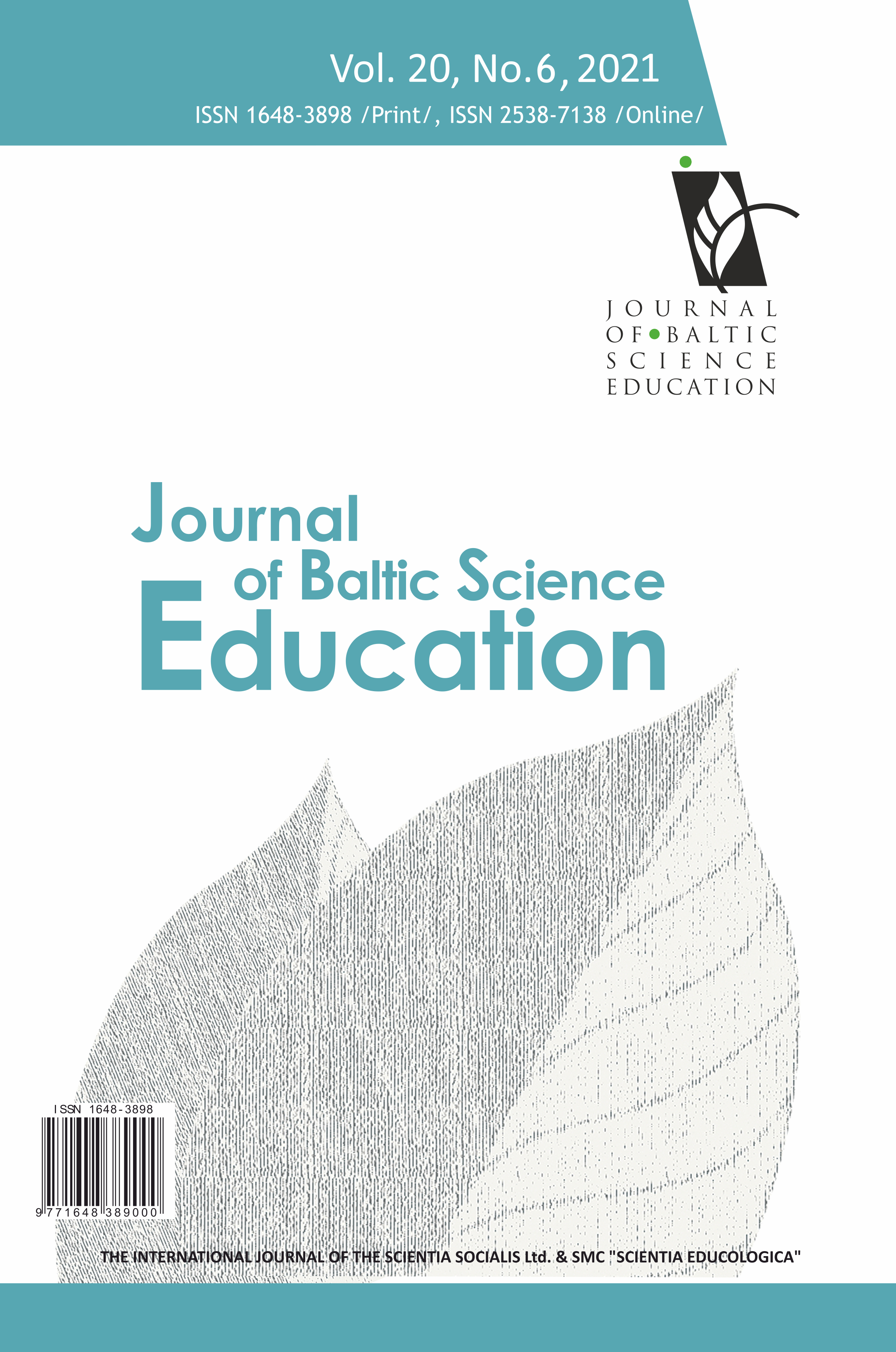THE EFFECT OF REACT STRATEGY ON ACHIEVEMENT IN SCIENCE EDUCATION: A MIXED RESEARCH SYNTHESIS
THE EFFECT OF REACT STRATEGY ON ACHIEVEMENT IN SCIENCE EDUCATION: A MIXED RESEARCH SYNTHESIS
Author(s): Cenk Akay, Sedat KanadliSubject(s): Education, School education, Pedagogy
Published by: Scientia Socialis, UAB
Keywords: contextual teaching; mixed research synthesis; REACT strategy; science education;
Summary/Abstract: There is a contradiction in the literature about the effect of REACT strategy on science achievement. This study aims to resolve this contradiction by determining the effect of REACT strategy on student science achievement and the factors affecting this strategy by integrating findings obtained from both qualitative and quantitative studies. The study was conducted using a mixed-research synthesis by including 19 quantitative and 10 qualitative studies. Data obtained from quantitative findings were combined using a meta-analysis method, and data from qualitative findings were combined using a thematic synthesis method. It was attempted to explain the variance between studies included in the meta-analysis by using analytic themes derived from the thematic synthesis. As a result of the meta-analysis, teaching based on the REACT strategy was found to have a strong effect on science achievement (ES = 1.041, 95% CI: 0.7876 to 1.2948). The thematic synthesis yielded four descriptive themes, “teaching-learning process in the REACT strategy”, “learning outcomes in the REACT strategy”, “limitations of the REACT strategy”, and “recommendations for practice”. Teaching based on the REACT strategy was found to contribute largely to the learning process and learning outcomes. Some limitations were found in practice, and recommendations were determined to address these limitations.
Journal: Journal of Baltic Science Education
- Issue Year: 20/2021
- Issue No: 6
- Page Range: 868-880
- Page Count: 13
- Language: English

